Final reflections - Global Citizenship and Ethical Leadership
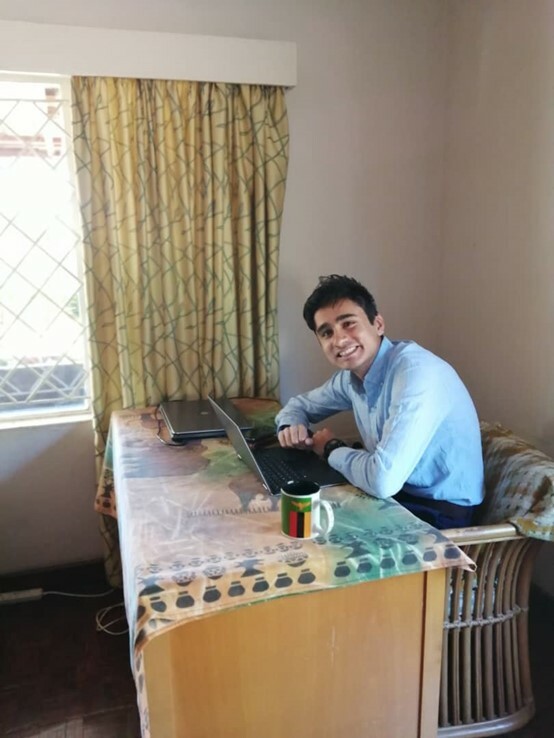
When I first decided to apply for the Laidlaw Scholarship over 2 years ago, I was coming to the end of my very first term of university, getting ready to go home for Christmas and recover from a busy and energetic two months of studies. It stood out to me because its emphasis on combining research and leadership skills in facilitating personal development was unique among the smorgasbord of extracurricular and enrichment activities Durham student life has to offer. And yet I had little idea of the extraordinary range of people, communities and networks within my campus and across the globe that this single opportunity would open up for me as a result of getting admitted to the programme.
The work I have been able to undertake across both of my summer breaks has been interesting, rewarding and impactful – from getting to create educational resources on English Literature (one of my joint favourite subjects alongside History!) for imprisoned participants of the Durham Inside-Out Project in my first summer, to helping to reform and update NGO-led programmes into reducing teenage pregnancies in Livingstone, Zambia in my second. However, my development as an ethical leader and as a global citizen does not directly owe much at all to the content of the work (as enjoyable as it was) but rather to the necessity it provided to meet and collaborate alongside incredible individuals and teams that I encountered as a result.
My supervision by two highly experienced Durham professors in Sociology and English during my first summer not only gave me access to a vast bank of academic knowledge but more importantly to a human awareness of some of the realities of life behind bars, particularly as both had a wealth of experience in prison education and working alongside inmates within local establishments. Due to ongoing concerns over Covid at the time of my project, I was sadly unable to visit any prisons or observe any educational programmes myself, which made the oversight of an occasional reality-check or two from my supervisors integral to my ability to make my work (and thus leadership) impactful and ethically-grounded. The Inside-Out Programme also originated from the US Justice System before being introduced to the UK by Durham University, so there was also something particularly rewarding about my work contributing to an emerging global movement to transform the experience of imprisonment.
For my Leadership-in-Action project in my second summer, I flew across the Equator to the country of Zambia in southern Africa – a part of the world which I had never visited or had any experience with before my travel. My project, conducted in partnership with local NGOs Sport-in-Action Zambia and Vilole Images Productions, allowed me to collaborate with a community of local youth volunteers, and to help enable them to develop their own leadership potential – something which you can read more about in this blog post. But the most important aspect of my experience abroad in my view was from living with a host family in the local community, which allowed me to see and experience the world as ordinary Zambians do. Aside from broadening my horizons and teaching me a culture and way of life to which I had no prior exposure, the time I spent with my Zambian family taught me things about myself I had previously taken for granted, including my attitude and motivation towards work, and persistence in seeking out and trying to take opportunities. I was particularly inspired by the other young people I was living with, at very similar stages in age and development to me, who demonstrated ambition and courage under challenging circumstances – both traits which I now have a better appreciation of as being integral to ethical leadership and global citizenship. The family lives in a beautiful home and is well-respected, yet I found that the most important thing which united us as a unit was a strong commitment to living our values in practice – something which my host demonstrated 7 days a week with her innumerable voluntary and family commitments across the local community.
I’m tremendously grateful to have been selected for the Laidlaw Scholarship, and I very occasionally still wonder why, especially when I consider how incredible some of the other Laidlaw Scholars I’ve had the pleasure of meeting and getting to know are. But it has been a life-changing journey, and I certainly do not see my journey in ethical leadership or global citizenship ending with my completion of the scholarship, but rather something I will continue for the rest of my life. I’ve been able to learn just how fulfilling it is to be of service to others, and how Laidlaw values including bravery and determination in particular are just as important in everyday life at home as they are somewhere as far away as Zambia. I want to finish by acknowledging the importance of gratitude, for the chance to meet and work with extraordinary people and communities, and for the general enjoyment of conducting interesting (and paid) work from home and abroad to make the world a better place for its people.
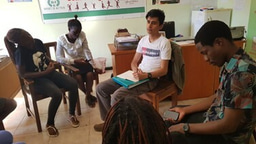
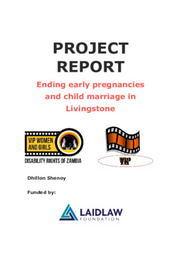
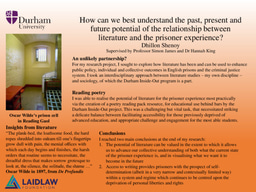
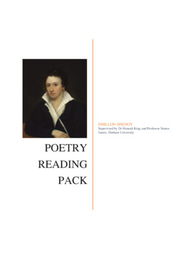
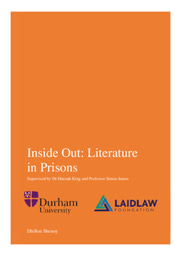
Please sign in
If you are a registered user on Laidlaw Scholars Network, please sign in